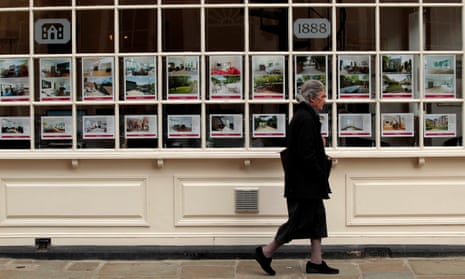A report from Legal & General and economics consultancy Cebr has found that Britain’s parents have just entered the top 10 UK mortgage lenders. Collectively, they will lend their children £6.5bn this year to buy homes; an amount similar to that lent by the UK’s ninth-biggest mortgage lender, Yorkshire Building Society.
The news has been spun as an example of intergenerational inequality and a broken housing market, which it is – in part. But there is also something bigger and much more damning going on here: these figures represent a massive transfer of wealth by the middle classes to their children. This is essentially a form of wealth hoarding. Indeed, according to research by Royal London, housing wealth is passed down from generation to generation, and “only around 4 million of the 17 million people in the 25-44 age group are in the fortunate position of having grandparents with housing wealth”. In other words, fewer than one in four.
If we’re going to start talking about this problem, we need to do it properly. That means dispensing with grotesquely cuddly terms such as “bank of mum and dad”, in favour of concepts such as unearned wealth and rentier capitalism. According to the economist Guy Standing, a long-term critic of rentier capitalism: “Since the 1980s, the share of income going to labour has shrunk in most economically significant countries. Real wages on average have stagnated or fallen. Today, a tiny minority of people and corporations are accumulating vast wealth, not from ‘hard work’ or productive activity, but from rental income.”
And while the recipients of parents’ money aren’t the super-rich class Standing is referring to, they are nevertheless accumulating relatively vast amounts of wealth by unearned means. This is not “intergenerational inequality” so much as it is the collapse of the tentative middle class into the one below it over a period of three decades, resulting in a property-owning elite and a sprawling precariat.
According to Thomas Piketty, in his book Capital in the Twenty-First Century, the widening inequality caused by inherited wealth is characteristic of a capitalist system. Piketty argued that this function of capitalism was only briefly disrupted by the literal destruction of property during 20th-century wars and the creation of welfare states, and what we’re seeing now is a return to normality. The bank of mum and dad is therefore a proxy for the main class gap in society – not between those who earn high salaries and those who earn low ones, but between those who inherit wealth and those who do not.
To that end, Piketty’s suggested remedy of a wealth tax must now be seriously debated. There are numerous examples of wealth taxes already in existence. Iceland introduced an emergency wealth tax of 1.5% between 2010 and 2013, which was praised by economists, policy-makers and even the IMF. The Green party has repeatedly called for a wealth tax of 2% on the UK’s richest individuals. Amazingly enough, even Donald Trump suggested a one-off wealth tax of 14.25% in 1999.
I would go further: inheritance tax should also be hiked massively from 40% to 90% – a move that would only affect 40,100 taxpayers but would address the scandal of wealth hoarding. Governments also need to enact legislation to ensure stronger trade unions – in Britain, this could mean the repeal of Thatcher’s 1984 Trade Union Act. According to the authors of The Spirit Level, Kate Pickett and Richard Wilkinson, the decline of trade union membership in 16 OECD countries correlates with the increase of inequality between 1966 and 1994.
While addressing this wouldn’t prevent parents from giving their children an unfair advantage, it would mean workers’ salaries might increase to the extent that housing would be affordable. Pickett and Wilkinson also found that powerful unions correlate with a stronger political left, meaning that the repugnant imbalances created by capitalist economies stand a better chance of being levelled out.
These solutions might sound extreme, but they’re proportionate. It is within our power to address Britain’s increasing levels of inequality, and collectively we need to stop talking about wealth hoarding as some unfortunate accident. The transfer of inherited wealth between generations of the middle class isn’t a civilised or fair way to run an economy, and those who benefit from it are not victims. It’s time for a more honest conversation.
